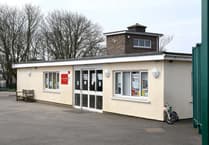Relationships and Sex Education lessons have resumed in island primary and secondary schools - and a website has been launched to give parents an idea of what will be taught.
RSE lessons were put on hold in March last year after concerns were raised about content and delivery at Queen Elizabeth II High School in Peel.
An independent review found that the curriculum taught was appropriate and lessons should continue but it recommended that there should be better communication with parents and greater specialisation and training for teachers.
Parents will be able to find details of RSE content on a new website that continues to be developed. It can be found at PSHE.sch.sites.im
It includes a section on ‘myth busting’ which addresses concerns that RSE destroys a child’s innocence and gives them too much information too soon.
In response to the myth that RSE lessons ‘make’ children become LGBTQ+, it states: ‘LGBTQ+ education is not about “teaching” children to “become” a particular identity or orientation - it is about normalising and respecting their humanity.’
The website also includes details of an RSE assembly on sexting which will be delivered to all students in years 7 to 11.
Sexting is one of the new offences covered by the Sexual Offences and Obscene Publications Act which came into effect on March 25.
Under the Act it is illegal, if you are under 18, to send a naked picture of yourself via social media or text and it is against the law to keep it such an image on your phone if receive one.
Education Minister Daphne Caine told the House of Keys that parents will be contacted this week about details of RSE provision during the summer term.
She said: ‘If any parents have any concerns over the content of the website or the curriculum, then they will be encouraged to contact the head teachers.’
Mrs Caine said specialist training by a UK provider was being given to staff, one in each secondary school, so they can deliver further lessons in the autumn term.





Comments
This article has no comments yet. Be the first to leave a comment.